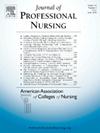A naturalistic inquiry of Nigerian immigrant nursing student experiences in U.S. baccalaureate nursing programs
IF 2.9
3区 医学
Q1 NURSING
引用次数: 0
Abstract
Background
Nigerian immigrant nursing students often struggle to understand Western culture vocabulary and terminology used in U.S. nursing program curricula, which can lead to isolation and prevent Nigerian students from seeking help to overcome their language barrier. The paucity of research on acclimation of Nigerian immigrant students to U.S. nursing programs and lack of understanding likely impede effective instruction and diminish student success.
Purpose
The study presented here explored how Nigerian immigrant nursing students acclimate to the teaching-learning environment in U.S. baccalaureate nursing programs.
Method
Guided by Lincoln and Guba's, 1985 work on Naturalistic Inquiry, the five themes emerged from the data analyzed. These included Stepping into America, Navigating the Rough Waters, Unexpected Changes, Searching for Consistency, and Hopes of Finding Clarity.
Results
The study found that Nigerian immigrant nursing students have both positive and negative encounters with faculty and classmates, as well as challenges and obstacles related to American English, their heavy accent, family expectations, and work obligations.
Conclusion
These findings could inform more effective U.S. nursing school strategies to assist Nigerian immigrant nursing students better acclimate to Western culture and increase positive program experiences and outcomes.
尼日利亚移民护理学生在美国护理学士学位课程经历的自然主义调查
尼日利亚移民护理专业的学生常常很难理解美国护理专业课程中使用的西方文化词汇和术语,这可能导致他们被孤立,并阻止尼日利亚学生寻求帮助来克服语言障碍。关于尼日利亚移民学生适应美国护理项目的研究的缺乏和缺乏理解可能会阻碍有效的指导并减少学生的成功。目的探讨尼日利亚移民护生如何适应美国护理学士学位课程的教学环境。方法以Lincoln和Guba 1985年的《自然主义探究》为指导,从分析的数据中得出五个主题。这些主题包括:踏入美国、在波涛汹涌的水域航行、意想不到的变化、寻找一致性和希望找到清晰。结果研究发现,尼日利亚移民护理专业的学生在与老师和同学的交往中既有积极的一面,也有消极的一面,以及与美式英语、浓重的口音、家庭期望和工作义务相关的挑战和障碍。结论这些发现可以为美国护理学校提供更有效的策略,以帮助尼日利亚移民护理学生更好地适应西方文化,并增加积极的项目经验和成果。
本文章由计算机程序翻译,如有差异,请以英文原文为准。
求助全文
约1分钟内获得全文
求助全文
来源期刊
CiteScore
4.80
自引率
8.00%
发文量
153
审稿时长
52 days
期刊介绍:
The Journal will accept articles that focus on baccalaureate and higher degree nursing education, educational research, policy related to education, and education and practice partnerships. Reports of original work, research, reviews, insightful descriptions, and policy papers focusing on baccalaureate and graduate nursing education will be published.

 求助内容:
求助内容: 应助结果提醒方式:
应助结果提醒方式:


